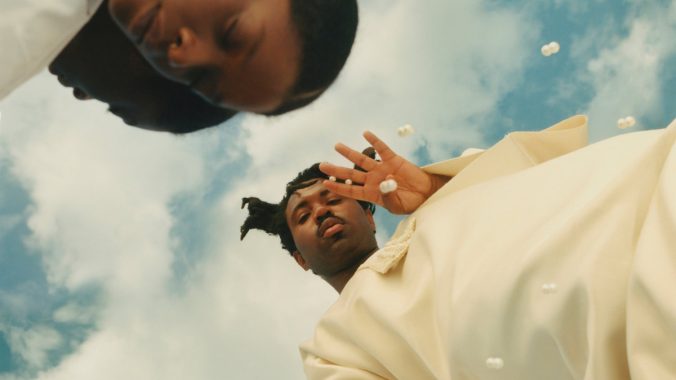Sampha Returns to His Roots on Lahai
The English singer/songwriter and producer goes deep into his own history and spirituality on his sophomore LP

Few artists shaped the sound of the 2010s as much as Sampha. Having built a reputation as a cutting-edge tastemaker, there was a time when it felt like the South London-hailing singer, songwriter, and producer was everywhere all at once, thanks to his unforgettable vocals, visionary production skills and soul-baring lyricism. He set the tone for 2013 Drake deep cuts “Too Much” and “The Motion,” lent his voice to tracks by Beyonce, Kanye West and Frank Ocean and provided production, songwriting and instrumentation for the likes of Solange, Florence and the Machine, Robyn and FKA Twigs. By the time he released his 2017 debut album Process—to rave reviews—he’d already built up the kind of resume that many artists can only dream about. At just 28 years old, he’d climbed to the top of the mountain, garnered critical and commercial acclaim and collaborated with artists he admired and grew up listening to. So—what comes next?
After years of nonstop work and external accolades, Sampha opted to take a step back and turn inward. “I was just dealing with a few things,” he says simply. He became a father, welcoming his first child, a daughter, into the world in 2020. He began work on his sophomore record, Lahai, the way he always does—in solitude, taking refuge in art and finding inspiration in Kodwo Eshun’s 1998 book on Afrofuturism in music, More Brilliant Than the Sun. He was captivated by Richard Bach’s self-reflective, allegorical fable Jonathan Livingston Seagull and absorbed the teachings of English physicist Brian Cox. The ideas present in these texts opened his eyes to new worldviews and became cornerstones to the foundation of his second album.
Lahai is very much the culmination of this perspective-shifting period in Sampha’s life, and sees the ever forward-thinking artist pushing the envelope by experimenting with new sounds, lyric structures and ideas. The impact of the last few years’ influence is evident—Lahai is a transformative album that explores themes like afrofuturism and magical realism across 14 tracks that span a multitude of genres, including soul, rap, jazz, dance, jungle and West African music. And it’s a record that’s as intimate as it is imaginative. Over the course of the album’s 38-minute runtime, Sampha embarks on an introspective journey that sees him embracing love, self-acceptance and spirituality as ways of increasing his own awareness and understanding of the world around him.
-

-

-

-

-

-

-

-

-

-

-

-

-

-

-

-

-

-

-

-

-

-

-

-

-

-

-

-

-

-

-

-

-

-

-

-

-

-

-

-








































